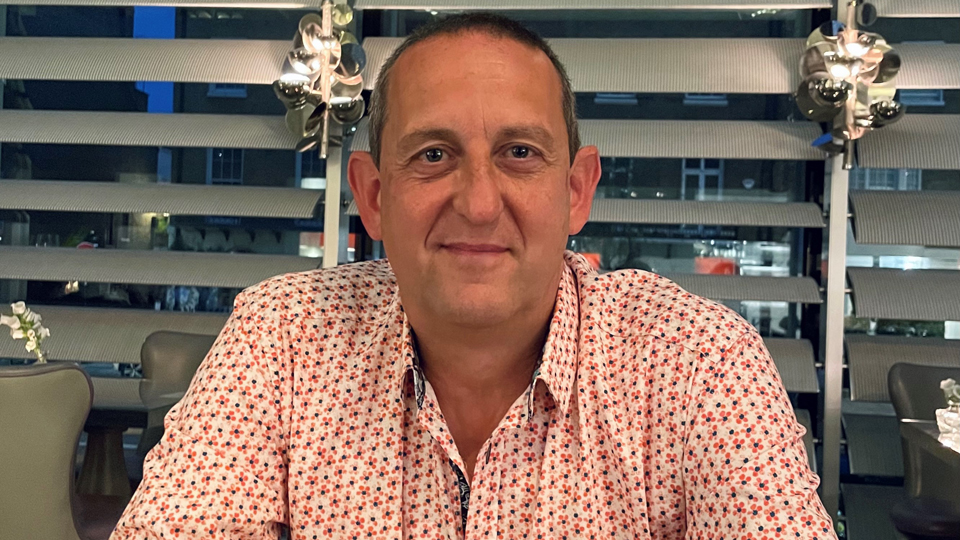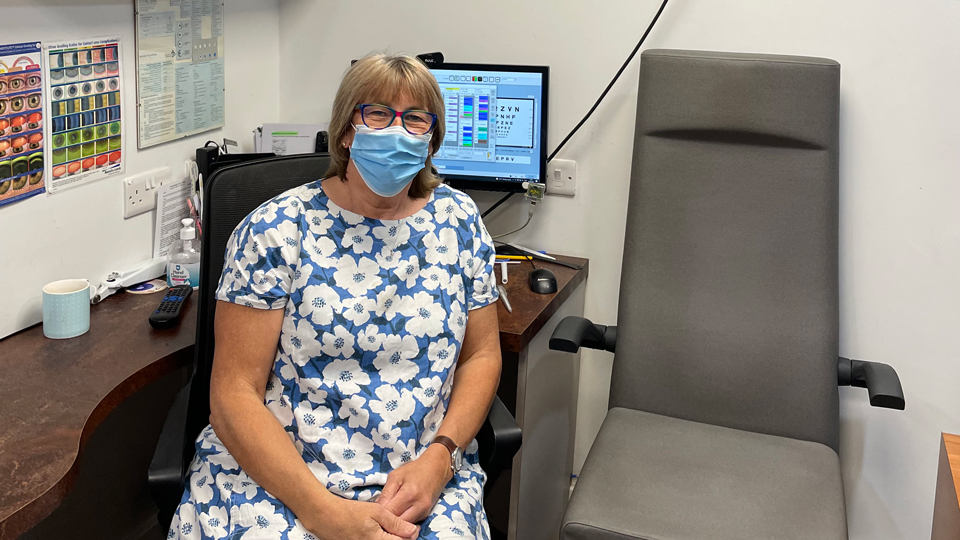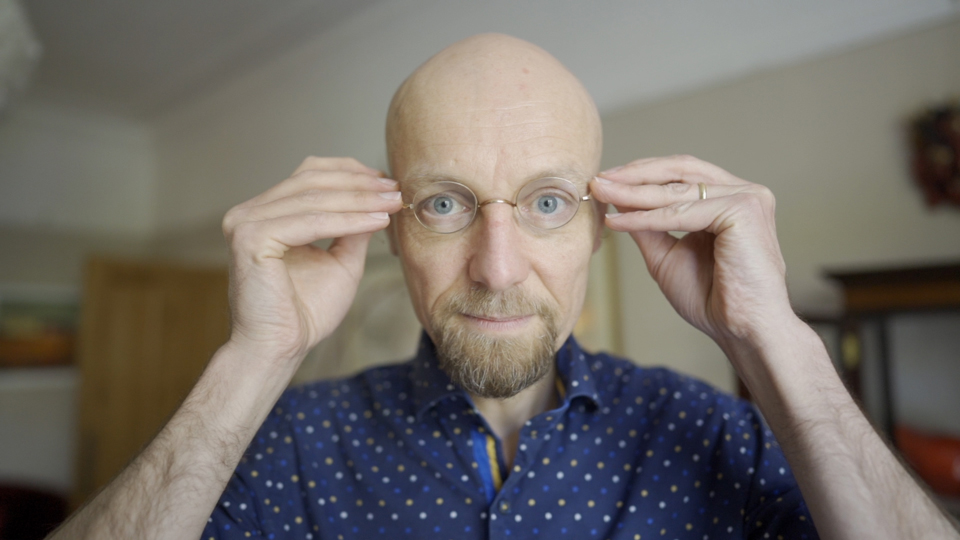- OT
- Life in practice
- Career development
- Keep on learning
The discussion
Keep on learning
OT speaks to three optometrists who have exceeded the GOC’s CET point requirements about what education means to them

24 October 2021
Education means different things to different practitioners. While for some it may mean the collection of points in order to meet the requirements set out by the General Optical Council (GOC), for many it will be about an appetite for continued learning, self-improvement and a thirst for knowledge.
Optometrists Steve Clark, Helen Tilley and Simon Falk have all collected far more CET points over the last three years than the GOC’s CET cycle requires. In fact, each of them has more than double the number of points stipulated. But why?
“For me, education is about lifelong learning and making sure that I am trying to be the best practitioner that I can be,” domiciliary professional services optometrist at the OutsideClinic, Clark, told OT.
During his 32 years since qualification, the profession has developed and new technology arisen, Clark said, explaining: “For lots of reasons, the world changes and things develop and move on. Things like optical coherence tomography (OCT) have appeared during my career and if I didn’t complete CET and educate myself on it, I wouldn’t know what an OCT looked like let alone what it meant.”
For Clark, who has achieved 83 points to date in the current CET cycle, continued education is also about relearning. “There will be lots of things during my career that I have forgotten as I don’t use them frequently, so I also do CET to remember what I knew in the past,” he said.
Having collected 72 CET points to date, optometrist and owner of Monnow Eyecare, Helen Tilley, shares similar views, calling continued education “vital” to her as a practitioner. “Having been qualified 32 years, I started out in the profession expecting to be refracting and prescribing glasses, fitting contact lenses, and identifying eye disease and sending it on. In 32 years, optometry has changed almost beyond recognition, and I probably spend less than half my time refracting,” she shared.
As an independent prescribing optometrist, Tilley is able to treat eye emergencies in practice and hosts a virtual glaucoma clinic. In order to provide these services, Tilley completed additional qualifications. “The profession needs to continue to develop and evolve to the changing needs placed on us,” she emphasised, having further educated herself in order to upskill and develop as a result.
With 81 CET points to date, for Simon Falk, optometrist and director of Simon Falk Eyecare, CET is “a continuation of what you should be doing as a practitioner day-to-day,” and something that he takes a lot from professionally.
Falk sees qualification as a starting point rather than the end goal. “I have always felt that while optometrists will have completed their qualifying exams and drawn a line in the sand, that doesn’t make them a great practitioner. On qualification, practitioners may have the knowledge, but they don’t have the in-practice life experience, and the only way they can become that rounded practitioner with all of the skills required is to continue learning,” he shared.
Falk uses education to advance himself as a practitioner. “Practice would be extremely boring if you just qualified and said one and two for the rest of your life. Education provides me with continual learning and the opportunity to challenge myself. It also enables me to explore new and advancing areas and disciplines that I might not be able to otherwise,” he shared.
Falk highlights that education is not just about advancing himself, it is also about advancing the profession. “It provides the opportunity to further your profession and not stagnate,” he said, adding: “More is going to come into primary care, tightening the link between optometry and ophthalmology, and if we don’t step up as a profession someone else will. We must enhance our skills to meet these needs and there is an opportunity to do that now. That’s a massive driver: to want to enhance the profession rather than be seen as a good glasses seller.”
Tilley reiterates this, emphasising: “We already have more accurate autorefractors and artificial intelligence taking over identifying disease. If we stand still, we won’t exist.”

If you want to stay up to date and at the forefront, then you have to do education regularly
The meaning of education
Tilley was not aware of how many CET points she had consumed in the current cycle until she was asked to check. She does not see education as the consumption of CET, but rather part of her ongoing development, “enhancing my knowledge base to provide the best service I can to patients.”
Working in domiciliary optometry, Clark aims to tailor his education to his patients’ needs. “The average age of the patients we see at the OutsideClinic is 84, so, relative to optometry on the High Street, there is a lot of pathology,” he said, sharing that on the day prior to speaking to OT, of the six patients he saw, he referred two of them for sight threatening conditions.
As a direct result, in recent years Clark has completed professional certificates in glaucoma and medical retina. “I see a lot of patients with glaucoma and a lot of patients with age-related macular degeneration and I felt that as a practitioner in order to be able to do the best by my patients I should complete those certificates.”
OutsideClinic supports Clark in his ongoing education, providing funding and study days in his working week. “They are supportive employers in helping us to be the best that we can be,” he shared, adding: “It’s easy when you work for a company that wants to help drive you in the direction that you want to go.”
Finding the time
The trio admit that whilst they have been avid learners throughout their careers, today it is much easier for them to consume education than years previously because there is more choice in both topics and format than ever before.
“I used to have to take a full day out of practice to travel somewhere to consume education,” Falk recalls. “Now I can complete education at home in the evening online or during a train journey,” he added.
Having joined the Hakim Group in July 2017, Falk emphasised how it has now become even easier to find and consume education that is of interest to himself and his staff. “One advantage of being with the Hakim Group is that it provides us with access to an online platform full of education, including webinars and videos,” he shared.
As a practice owner, Falk feels it is important to support his colleagues in achieving their educational goals too and, as a result, he provides staff with somewhere to go during their working day to consume education in practice. “We have converted a spare room into a training suite and have installed a large screen TV so that people can go and consume online education,” he told OT.
Clark agrees that access to education has never been easier: “When I qualified, education was paper-based and I would have to post answer sheets off for marking; it was all very clunky and quite an effort. But in the modern world today everything is at your fingertips. I can login at home and watch informative and hugely interesting talks with top class speakers from the comfort of my own home and be one of 500 people listening.”
Clark acknowledges that “life is busy, and it can sometimes feel like there are not enough hours in the day” but says “it’s about a balance.”

My motivation comes from really enjoying my job, doing the best for my patients and providing an exemplary service in the community
Staying motivated
Clark accepts roughly 50% of the education offers that he receives. During his career, he has learnt that, for him, committing to education and having it in his diary is important. “I like the incentive of an invite on a particular time on a particular day. It motivates me to attend as I said ‘I will do that,’ so I will. At times when I have just made a list of things I should log into, time rarely allows me to and life gets in the way,” he told OT.
“I decide what invites to accept based on if I am going to learn something that is going to make a difference to my patients,” Clark said.
It is also important for the domiciliary optometrist to carve out the time for education. Clark’s rule is never eat tea when taking CET. “It’s very tempting to do in the modern world, but the reality is you never listen and you never learn this way.”
Falk’s motivation comes from a fear of falling behind and therefore little and often is an approach he tries to stick to, but he admits that life priorities change from time-to-time. “If you want to stay up to date and at the forefront, then you have to do education regularly. Technology moves quickly and it’s easy to fall behind. Due to my age and associated technological skills, I have to ensure that I learn continually around this area.”
As a practice owner it is also important for Falk to be able to offer his patients with the best possible clinical care. “I want to be able to offer my patients the highest level of care and in order to this I have to make sure I am practising at my highest level and therefore continually educating myself.”
Tilley admits that she does see her continual education as CET. “I don’t look at it as consuming CET, rather as part of my development, enhancing my knowledge base in order to provide the best service I can to my patients,” she said, which is also what motivates her.
As a result, she has exceeded the CET points requirement not through trying but by “attending lectures and conferences that interest me,” she said, stressing: “I do online CET where I feel I need my knowledge boosting, but certainly wouldn’t attend a lecture or read an article just because it has points associated to it.”
Tilley emphasises that not all education has to be formal, noting that she learns a lot informally through talking to and discussing cases with colleagues, as well as through clinical WhatsApp groups that she is part of. “I consult with colleagues and get their opinions and learn so much through this,” she shared.
“I don’t look at it as how to fit it into my working week – it’s continual learning from others and mentoring others,” Tilley said, adding: “My motivation comes from really enjoying my job, doing the best for my patients and providing an exemplary service in the community.”
It’s flexible and there are lots of ways to do it. Therefore, it is an opportunity really missed if you don’t take up those offers

Encouraging others
Clark feels that with a plethora of continued learning available in many different formats, consuming education has never been easier. “It’s flexible and there are lots of ways to do it. Therefore, it is an opportunity really missed if you don’t take up those offers,” he said.
“I don’t think that I have ever completed a piece on continued learning where I haven’t learned something or remembered something that I had forgotten,” he stressed, adding: “It makes you a better practitioner, which means you can do better by your patient.”
Tilley encourages practitioners to embrace continued learning and development because “that is what makes you a professional.”
“Patients and hospital colleagues will have much more respect for you if you take clinical responsibility,” she added.
“If you want a career you have to keep educating yourself. There will be a better and more challenging career available to you if you do,” Falk closed.


Comments (0)
You must be logged in to join the discussion. Log in